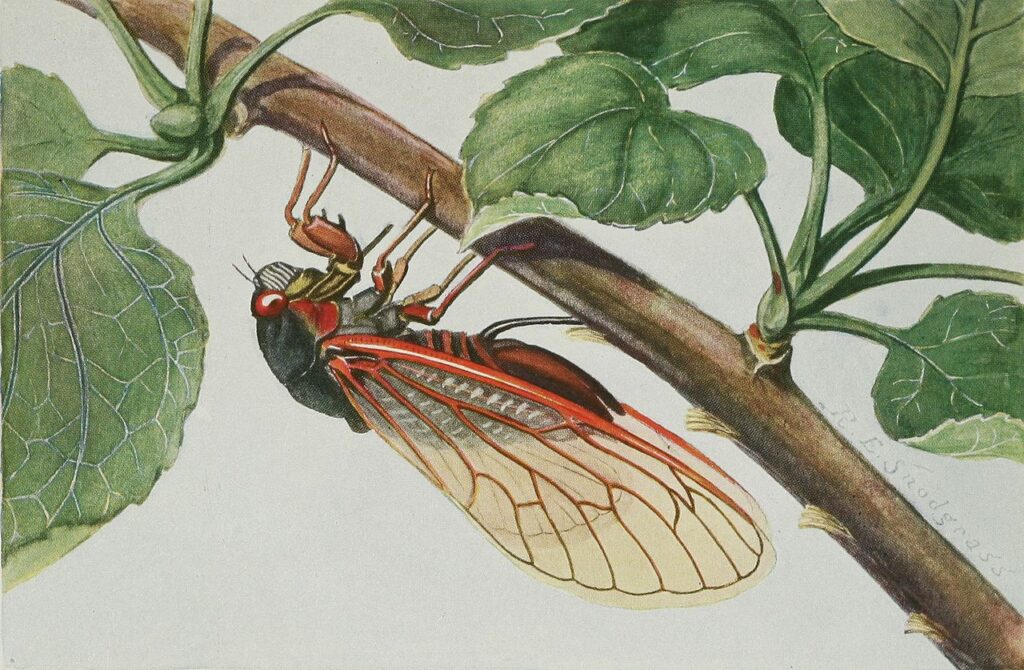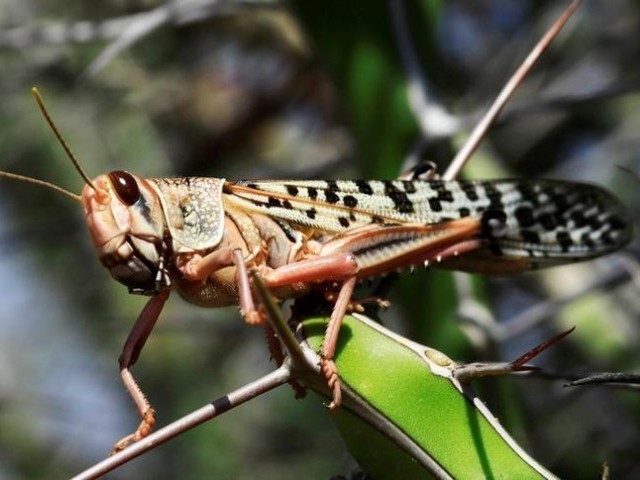By Jan Khaskheli
In warm tropical and sub-tropical regions like Sindh, the sound of the cicada is one of the most familiar ones in nature. Very soon, however, that sound may never be heard in Sindh areas, said environmentalists, who keep a close eye on climate change.
The cicada is a green or brown insect, depending on its environment, called \”Aar\” in the Sindhi language. Cicadas are also called dry flies, because of the dry shell, they leave behind. They inhabit orchards, thick forests, and agricultural fields.
With a pair of thin membranes in the cuticle on each side of the first segment of the abdomen, male cicadas emit the series of low-intensity sounds so familiar in Sindh – also known as ‘call of the jungle’ in local parts.
The sound serves as a mating call and there are usually only two reasons a cicada will stop singing. The first is when it senses danger. As soon as a cicada feels a predator approaching, it falls silent, as boys in local villages who have attempted to pick a cicada off a tree trunk will be able to attest. The second is if the cicada dies. However, the cicada is known as one of nature’s great sounds in the world, enigmatic and very loud.
Some studies show that the loss of forests and overall tree cover in rural areas and growing urbanization in Sindh province have together caused the degradation of natural habitats of wildlife species, mainly the loss of cicada diversity, whose voice and behaviour inspire many people in rural areas.
Cicada is a conspicuous insect group, especially in warm temperate and tropical zones, due to its large body and species-specific calling songs.
In Sindh, the increasing deforestation, the decreased rainfall, and the excessive use of pesticides make finding a cicada alive very difficult indeed. For a start, cicadas breed during the monsoon season. The lack of rainfall has meant they have been unable to do so. Some people associated with the wildlife department can offer another reason behind the drop in the number of cicadas: “Since there has been no rainfall in the region, the cicada may have fallen prey to hungry birds in its natural habitat.”
Whether it is because they might have fallen prey to birds, or been unable to breed, or killed by pesticides. But what is certain is that the number of cicadas in the environment is drastically decreasing. It should not happen, says a local environmentalist, who knows it. He mourns the damage done to the environment. “Nobody takes notice of the loss to the ecosystem,” he says. On a visit to a native village, he is looking for to hearing the cicada\’s sound.
He heard nothing. “These insects are essential to our ecosystem, but unabated use of pesticides, especially on cotton crops, they might have been destroyed. This destructive practice of pesticide spray on crops is to save the plants in order to produce more cotton or any other cash crop. How can we stop it?” he asks in an angry tone.
Unlike full-grown cicada insects, cicada larvae live entirely underground, where they feed from the xylem sap of plants. Low nutrient content in the soil means it can take several years to attain full size. Upon reaching a mature size, females communicate by emitting a simple series of pulses. The males respond by producing their more complex ‘song-like chirping’. Despite looking like grasshoppers, their sound mechanism is entirely different. The shells cicadas leave behind may look the same, but different species of cicadas can be identified by their tone of chirping alone. In Pakistan, cicadas migrate from north to south.
It is estimated that about 2,500 species of cicada are there in the world. Many of these remain unclassified. Villagers in Sindh say it has been a long time since they saw a cicada. If the present of deforestation trend continues, they may not be seen once again.
About Author

Mr. Jan Khaskheli writes extensively on the environment, changing ecosystems, and disappearing precious wildlife species, including common mammals, birds, reptiles and insects. He was born to a peasant family and grew up in a village. The life he has spent always inspired him to depict in stories for newspapers. Besides writing features, he also has a passion for writing short stories and poetry.
Cover picture: Wikipedia




Saeen as uusal informative and offbeat topic.